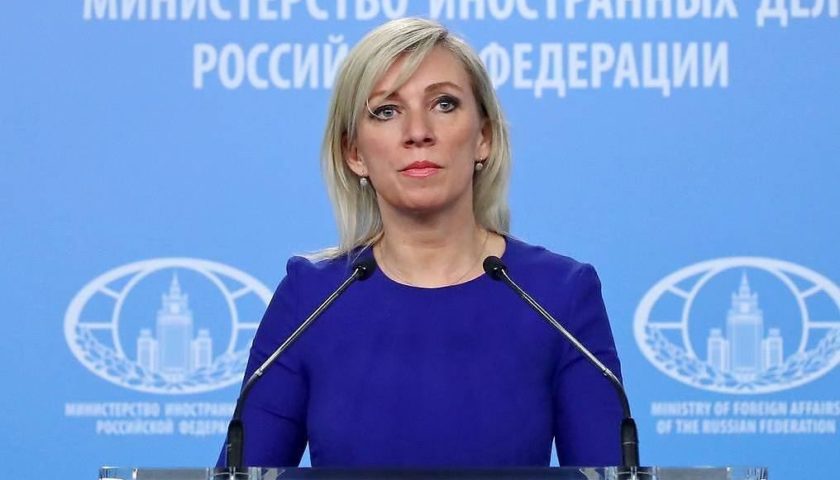Far-right politician Naftali Bennett says he has agreed to a deal with Yair Lapid to forge a coalition government
The far-right Israeli politician Naftali Bennett and opposition leader Yair Lapid have agreed to forge a coalition government that would oust Prime Minister Benjamin Netanyahu from his 12 straight years in power.
“It’s my intention to do my utmost in order to form a national unity government along with my friend Yair Lapid, so that, God willing, together we can save the country from a tailspin and return Israel to its course,” said Bennett, a former settler leader and religious nationalist, in a televised address.
While further political negotiations are expected, the move by Bennett served a massive blow to Israel’s longest-serving leader, who is famed for his political wizardry and has survived repeated attempts to end his career.Advertisementhttps://cadb42db8f7a8530eb37804006f1b922.safeframe.googlesyndication.com/safeframe/1-0-38/html/container.html
Minutes after the speech ended, a stern-looking Netanyahu went on air to rail against Bennett. “He’s committed the scam of the century,” Netanyahu said of his former ally and senior aide, accusing him of abandoning rightwing voters.
Bennett, who wants to annex most of the occupied West Bank, is much closer ideologically to Netanyahu than Lapid, a former TV news anchor popular with the country’s secular middle class, who has been deep in negotiations to form a government before a Wednesday deadline.
According to local media reports on the deal, Bennett, the 49-year-old tech millionaire who previously headed the defence and education ministries, would become prime minister for the first two years of a term, with Lapid, 57, replacing him for the final two.
If Lapid can get an assortment of other parties to agree in the next three days – which is still not guaranteed – he could inform the country’s president, Reuven Rivlin, that he believes he can form a government, which would then go to parliament, the Knesset, for a vote.
The swearing-in of the new government, and with it Netanyahu’s relinquishing of high office, could happen within a week.
Opponents of Netanyahu, who is on trial on corruption charges that he denies, have accused the 71-year-old of divisiveness and prioritising his hold on power above all else. Despite their vast differences, many have rallied behind the idea of what they call a “government of change”.
“We need a government that will reflect the fact that we don’t hate one another. A government in which left, right and centre will work together to tackle the economic and security challenges we face,” Lapid said last week.
Netanyahu’s rightwing Likud party won the most seats in a March election and was given 28 days to build a majority coalition government. He too suggested a similar power-sharing deal with Bennett but it was swiftly rejected. After the deadline passed on 5 May, Lapid was handed a mandate under Israel’s electoral system.
Lapid, once a finance minister whose Yesh Atid party came second in the last election, had sped up political consultations in recent days following an 11-day bout of Gaza bloodshed that froze negotiations. The violence was seen as beneficial for Netanyahu’s political survival, as it reduced the negotiating time available to Lapid and created friction within the diverse opposition.

Still, Lapid, aself-proclaimed centrist and “security hawk”, has sought to forge tricky alliances with parties from across the political spectrum.
He plans to bring together the establishment Labor and anti-occupation Meretz parties with their traditional enemies. They include Bennett but also Avigdor Lieberman, who once suggested that “disloyal” members of the country’s Arab minority, who make up about 20% of its population of 9 million, should be beheaded.
The diverse group may require outside backing by Arab members of parliament, including Islamists, who would help Lapid clinch a 61-seat majority and dethrone Netanyahu. However, their ideological differences are too great to be full coalition members, meaning Lapid would probably form a minority government.
With such significant political differences, an anti-Netanyahu coalition could be liable to break apart. To prevent that from happening, it is expected to focus on the economy and the pandemic while avoiding big issues and keeping the status quo for millions of Palestinians living under occupation.
Mossi Raz, a Meretz parliamentarian, told Israel public radio that the proposed the government “will do a lot of good things. I’m not sure a peace agreement will be one of them.”
If the deal is successful, it could end both a political deadlock that has brought four snap elections since 2019 and Netanyahu’s 12-year historic stretch as prime minister.
Indicted in three separate corruption cases, including on charges of bribery and fraud, Netanyahu faces more than a decade in prison if convicted. Unlike one of his predecessors, Ehud Olmert, who stepped down after it appeared he would be indicted, Netanyahu has refused to leave power, and critics have accused him of a conflict of interests by remaining in the powerful position of prime minister.
Netanyahu had earlier on Sunday fuelled speculation that his term was about to end by offering a last-ditch offer to Bennett and another rightwing party head, Gideon Saar. Under the deal, seen as the most generous to date from Netanyahu, the three men would each “rotate” the role of prime minister. However, Saar, a former Netanyahu protege-turned-opponent, rejected the advance. “Our position and commitment was and remains to change the Netanyahu regime,” Saar tweeted.
Lapid took the role of head of the opposition from Benny Gantz, a former army chief who fought Netanyahu during the past three elections but who lost support after he made a power-sharing deal with the prime minister that ultimately collapsed.
If Lapid fails to announce a government by Wednesday, a fifth Israeli election later this year is a possible outcome.
… we have a small favour to ask. Millions are turning to the Guardian for open, independent, quality news every day, and readers in 180 countries around the world now support us financially.
We believe everyone deserves access to information that’s grounded in science and truth, and analysis rooted in authority and integrity. That’s why we made a different choice: to keep our reporting open for all readers, regardless of where they live or what they can afford to pay. This means more people can be better informed, united, and inspired to take meaningful action.
In these perilous times, a truth-seeking global news organisation like the Guardian is essential. We have no shareholders or billionaire owner, meaning our journalism is free from commercial and political influence – this makes us different. When it’s never been more important, our independence allows us to fearlessly investigate, challenge and expose those in power. Support the Guardian from as little as $1 – it only takes a minute. If you can, please consider supporting us with a regular amount each month. Thank you. (theguardian.com)




